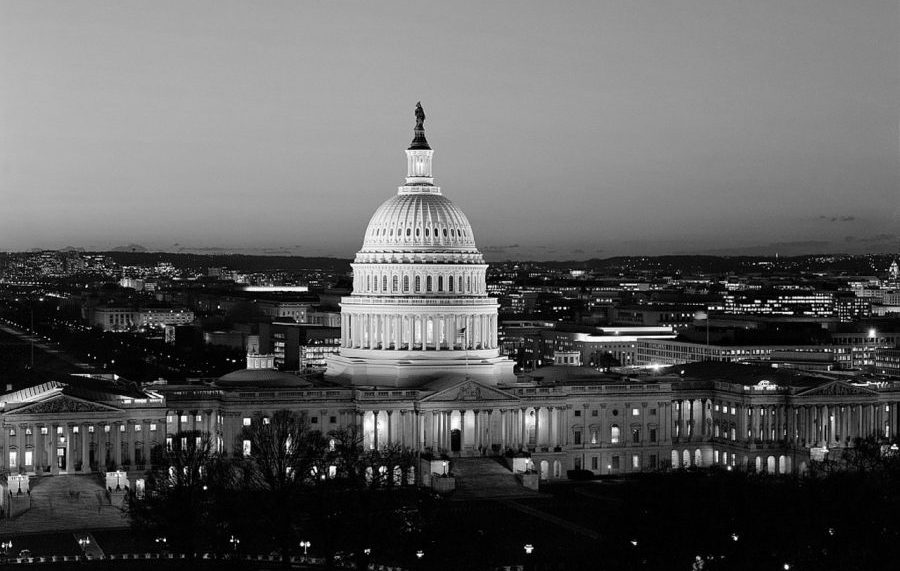“U.S., China Close In on Trade Deal.” Sunday afternoon’s Wall Street Journal article led with:
China and the U.S. are in the final stage of completing a trade deal, with Beijing offering to lower tariffs and other restrictions on American farm, chemical, auto and other products and Washington considering removing most, if not all, sanctions levied against Chinese products since last year.
The agreement is taking shape following February’s talks in Washington, people briefed on the matter on both sides said. They cautioned that hurdles remain, and each side faces possible resistance at home that the terms are too favorable to the other side.
Despite the remaining hurdles, the talks have progressed to the extent that a formal agreement could be reached at a summit between President Trump and Chinese President Xi Jinping, probably around March 27, after Mr. Xi finishes a trip to Italy and France, individuals with knowledge of the plans said.
As part of a deal, China is pledging to help level the playing field, including speeding up the timetable for removing foreign-ownership limitations on car ventures and reducing tariffs on imported vehicles to below the current auto tariff of 15%.
Beijing would also step up purchases of U.S. goods—a tactic designed to appeal to President Trump, who campaigned on closing the bilateral trade deficit with China. One of the sweeteners would be an $18 billion natural-gas purchase from Cheniere Energy Inc., people familiar with the transaction said.
The two sides continue to negotiate over issues involving Chinese industrial policy the U.S. argues gives Chinese domestic firms an advantage, especially state-owned enterprises. Last week, U.S. Trade Representative Robert Lighthizer said the provisions involving protecting intellectual property total nearly 30 pages out of a working document of more than 100 pages.
U.S. and Chinese negotiators are also working on setting up a mechanism through which complaints by U.S. companies could be addressed. The plan under discussion calls for bilateral meetings of officials from both countries to adjudicate disputes. If those talks don’t produce agreement, Mr. Lighthizer has said, the U.S. could impose tariffs.
Others involved in the talks said the U.S. is pressing Beijing to agree not to retaliate—at least in some cases—if the U.S. levies sanctions. That would be a big concession for Beijing negotiators, who say they want to make sure the deal doesn’t turn out to be an unequal treaty for China of the sort imposed by Western powers in the 19th century.
“The WTO just ruled against China’s agricultural subsidies. Will this translate to a big U.S. win?” This morning’s Washington Post article concludes:
The United States has won an important WTO victory against China’s subsidies but — with the Appellate Body in jeopardy — may be unable to enforce it.
“French tax on internet giants could yield 500 million euros per year: Le Maire.” Yesterday afternoon’s Reuters article led with:
PARIS (Reuters) – A three percent tax on the French revenue of large internet companies could yield 500 million euros (568.5 million pounds) per year, French Finance Minister Bruno Le Maire said on Sunday.
Le Maire told Le Parisien newspaper the tax is aimed at companies with worldwide digital revenue of at least 750 million and French revenue of more than 25 million euros.
He said the tax would target some 30 companies, mostly American, but also Chinese, German, Spanish and British, as well as one French firm and several firms with French origins that have been bought by foreign companies.
The paper listed Google, Amazon, Facebook and Apple (the four so-called “GAFA” companies) but also Uber, Airbnb, Booking and French online advertising specialist Criteo as targets.
IRS refunds catch up to last year’s. Friday, the Internal Revenue Service reported data for the first four weeks of the filing season through February 22. They showed cumulative refunds of $121.203 b., down 3.6% from the $125.671b. for the comparable period in 2018. The number of returns with refunds was down 4.8%, 38.566 m. compared to 40.504 m., and the average refund of $3,143 exceeded last year’s $3,103 for the first time this season. Refunds for returns with Earned Income and Child Tax Credits were delayed until late February to allow more fraud detection, and the government shutdown probably delayed some refunds as well. My expectation of a late surge in refunds is starting to happen.
“Annual Deficits Could Hit $2.3 Trillion” by 2029. That in Friday’s Committee for a Responsible Federal Budget analysis, which explains why the Congressional Budget Office Alternative Fiscal Scenario (AFS) is probably an underestimate.
National Tax Advocate Nina Olson to retire on July 31, 2019 per her personal message Friday. Treasury Secretary Mnuchin will nominate a successor.
12:15 PM Thursday — Fed Governor Brainard, “Economic and Monetary Policy Outlook,” at Princeton University.
10 PM Friday — Fed Chair Powell, “Monetary Policy Normalization and Review,” at Stanford University, live here.
President Trump’s Schedule (EST):
11:30 AM: Photo opportunity with the 2018 Division I FCS football national champions, the North Dakota State Bison;
1:45 PM: Daily intelligence briefing
2:30 PM: Signs an Executive Order on “Supporting the Transition of
Active Duty Service Members and Military Veterans into the Merchant Marine;” and
4:15 PM: Speaks to the National Association of Attorneys General.
Wednesday: Attends an American Workforce Policy Advisory board meeting.

























